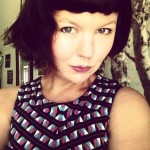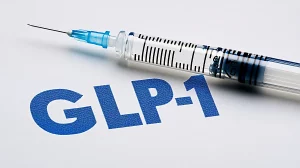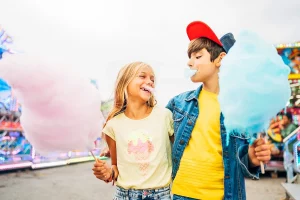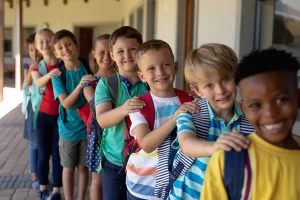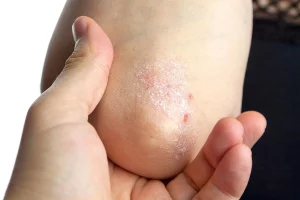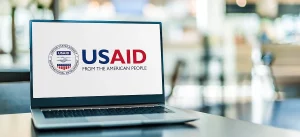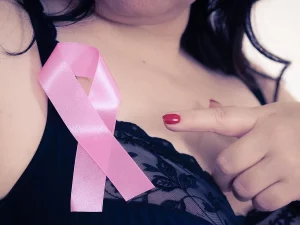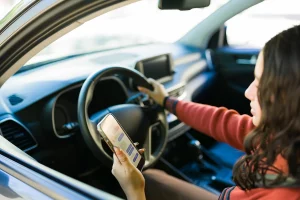LC: The ending brought to mind that Woody Allen line from Annie Hall about how relationships need to move forward to survive, like sharks, or they die. Most people use children as a way to move forward in their relationship. Do you think lifelong relationships (of 40 to 50 years) can survive without children as a catalyst? Or do you think our modern propensity towards childlessness will see the end of this way of life?
RR: That’s a great question. Surely some lifelong marriages survive without children but, speaking only for myself, as my husband and I came up on the 20-year mark with no children, something felt jammed up, stuck. A lot of the reason I pleaded with him to get me pregnant was a desire to keep the relationship moving forward. Fifty years with one person and no children feels very long to me. And I do think childlessness, along with other factors, is moving us more toward serial monogamy than lifelong marriage. But there are always those lucky couples, with children or not, who seem to fall and stay in love, and as a culture we are intent on holding them up as examples and believing that is possible for everyone. There’s something very deep and enduring about that dream of lifelong love.
LC: at Bitch once suggested books like Eat, Pray, Love are “priv lit.” You’re honest about the expense of paying for a second apartment and your set of choices in comparison to that of other women, and you mention your less than “privileged” childhood, which doesn’t make your book as sure an example of “priv lit” as the books referred to in the original piece.
Still, a one-day workshop at OneTaste costs $200. The Magic 5 Day retreat with Nicole Daedone costs $8100. If the book is a “manifesto to freedom” in some respects, as you write, it might be said to be a freedom available to only a few. Or, do you feel, that, without spending that kind of money, you would have had the same experience another way?
RR: Just to be clear, the OneTaste weekend workshops I attended cost me $90 a month, unlimited. I got a bargain! The $1,000 I spent on two David Deida workshops went down in the annals of my financial history as the biggest luxury ever. And I consider therapy a terrific investment in quality of life and relationships, a much better investment than clothes, shoes, new cars, big-screen TVs. But I take your point. As with anything high up on the Maslow scale, there is enduring guilt and confusion about how much energy to spend working out the problem of self-actualization.
But to your question: It needn’t take much money to experience the kind of freedom I sought. I read and hear of twenty-somethings, neo-hippies, backpackers, and other free spirits pursuing it all the time — they stay in rundown shared living spaces, they pick up strangers in bars and elsewhere, they sleep around, they experiment sexually, they roam the world. Liberation doesn’t need to cost much. I just happened to spend some hard-earned money on doing it in a way that felt comfortable to me.
LC: Finally, you are very comfortable with discussing the concept of “feminine” energy and “the feminine.” More widely, though, this concept is becoming more controversial. The idea that there is something essentially feminine or that femaleness is linked biologically to certain traits or that women have a connection to Nature is increasingly being rejected by younger generations of feminists. What are your thoughts on why “the feminine” and the so-called “Goddess movement” are so contentious today?
RR: It may be controversial, but all I can say is that I experienced it. In the years covered by the book, I felt deeply connected to an essential female core, a vein of feminine energy that was open, sensual, alive, nurturing, powerful, instinctual. I’m sure there are other words besides “feminine” to describe this, but that’s the best word I could come up with. And it’s interesting to note that as a young feminist, I felt none of this. In my twenties, I was concerned solely with equality and fairness and experienced myself as no different from any man. So I don’t think this idea of feminists rejecting “the feminine” is anything new.
My guess is that it might have something to do with age. It’s possible something happens to some women in their late thirties and early forties that, shall we say, intensifies their experience of femaleness. It’s why I sought out first a baby, then lovers, because I saw those as the two most powerful ways I could dive head-first into that feminine energy. In the end, I discovered other ways. These archetypes and their labels probably aren’t as fixed as we would like to think. I think both men and women can experience strong masculine or feminine energy, and that it can change throughout a person’s life.
The Wild Oats Project: One Woman’s Midlife Quest for Passion at Any Cost” will be available to purchase on March 17th, 2015, from Amazon, amongst other retailers. For more from author Robin Rinaldi, visit her website here.

